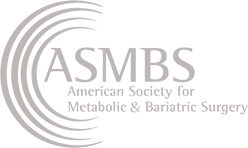Bariatric surgery is a game changer for people who need to lose a significant amount of weight. While the procedure is highly effective, it requires lifestyle changes. Specifically, your diet will need to change.
There are two stages to your diet after gastric bypass surgery. You’ll follow a regimented, four-phase diet in the weeks immediately following surgery. After that, you’ll adopt a long-term eating plan to maintain your weight loss and keep your body healthy.
The goal of the short-term diet is to allow your stomach time to heal while simultaneously kicking off the weight loss process. Here’s what to expect.
Post-Op Weeks 1-4
This is the most restrictive phase of the diet. You’ll consume clear liquids along with sugar-free jello, popsicles etc.
Instead of drinking large amounts of liquid, you’ll sip small amounts throughout the day. Your goal is consuming 3 ounces of liquid every 30 minutes. This may be uncomfortable at first, but it will get easier as your body adjusts. Avoid drinking through straws as this can cause gas.
Liquids can include:
- Diluted fruit juices (1/4 juice to 3/4 water)
- Broth
- Electrolyte fluid
- Ice chips
- Water
- Low-calorie sports drinks
- Decaffeinated coffee or tea
- Sugar-free jello and popsicles
Post-Op Week 2-4
You should start adding protein shakes during this phase.
Post-Op Weeks 5-6
A bariatric pureed diet should equal 2 ounces or about a half cup of food. Your goal should be 90-150 grams of protein a day depending on the type of surgery you have had. Along with soft pureed foods, continue drinking 80 ounces of fluids throughout the day.
Food options for phase two can include:
- Protein shakes
- Almond milk
- Nonfat soft cheese and cottage cheese
- High-protein, low-sugar yogurt
- Fruit purees (sugar free or low sugar
- Soups (bean and legume)
You can add more foods during this phase, but they should be soft enough to pull apart with a fork. As your body tolerates it, increase the serving size to 4 ounces per meal. However, you should stop eating when you feel full, even if you haven’t reached the full serving size. You should also continue to sip fluids between meals.
Meal suggestions include:
- Soups
- Eggs
- Canned fruit
- Over-cooked vegetables
- Lentils or refried beans
- Tofu
- Soft fresh fruits like berries or peaches
Post-Op Weeks 8 and Beyond
During this phase, you’ll introduce regular foods. You’ll start by adding one or two new foods to your diet each day. Eat slowly and chew foods thoroughly before swallowing. Meals should be 4-6 ounces and never exceed a cup.
The goal is three well-balanced meals and no empty calories. You’ll also need to take protein, vitamins and other recommended supplements so your nutritional needs are met.
While it’s safe to add foods back to your diet during this phase, you should continue to avoid:
- Rice, pasta, bread and baked goods
- Alcoholic and carbonated drinks
- High-sugar foods
- Milk
- Dry meats
- Fried foods
- Added sugars
- Oils
Bariatric Weight Loss Is a Process
After bariatric surgery, you’ll need to alter your diet for safety and weight loss success. Doing so will help you achieve your goals and transform your body.
At the Center for Weight Loss Surgery, we offer all surgical options approved by the American Society for Metabolic and Bariatric Surgery (ASMBS), including sleeve gastrectomy, duodenal switch, duodenal switch with single anastomosis and revision surgery. Schedule a consultation today and learn how we can help you look and feel vibrant and healthy.




